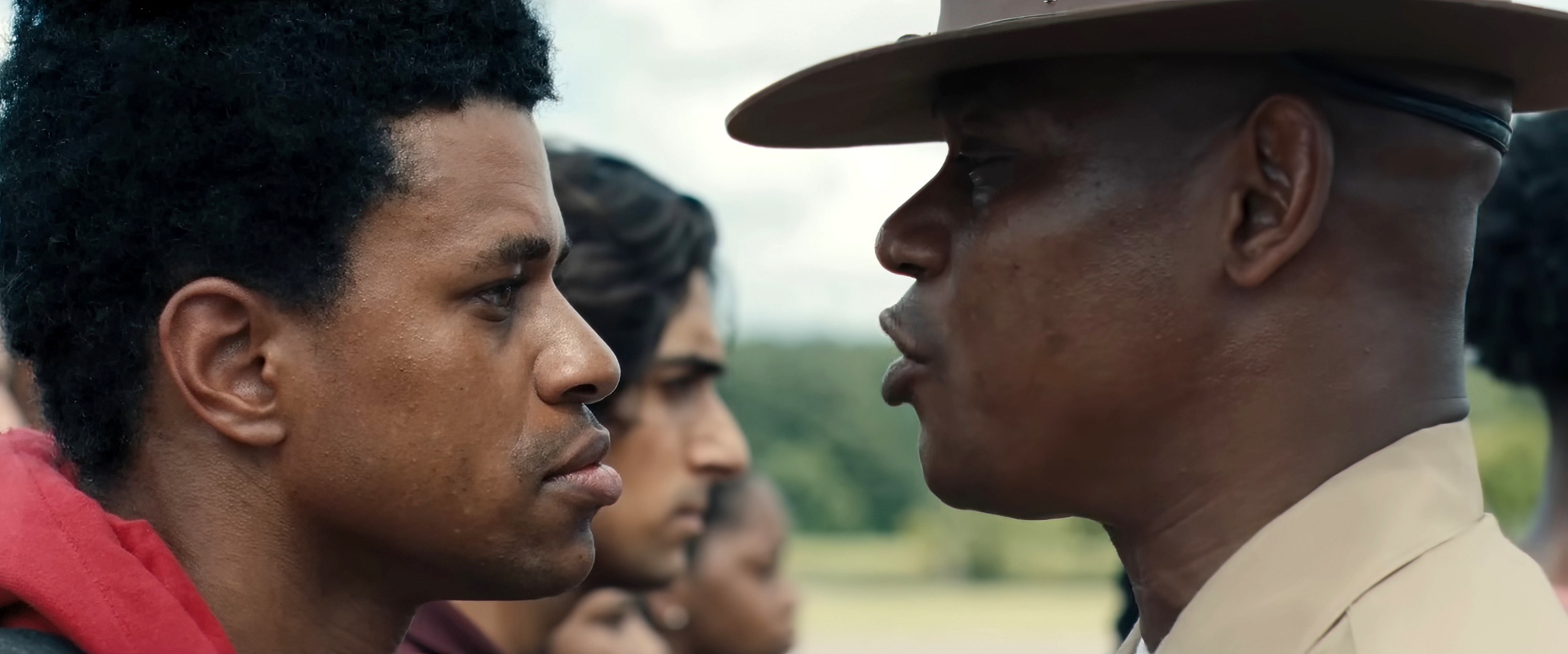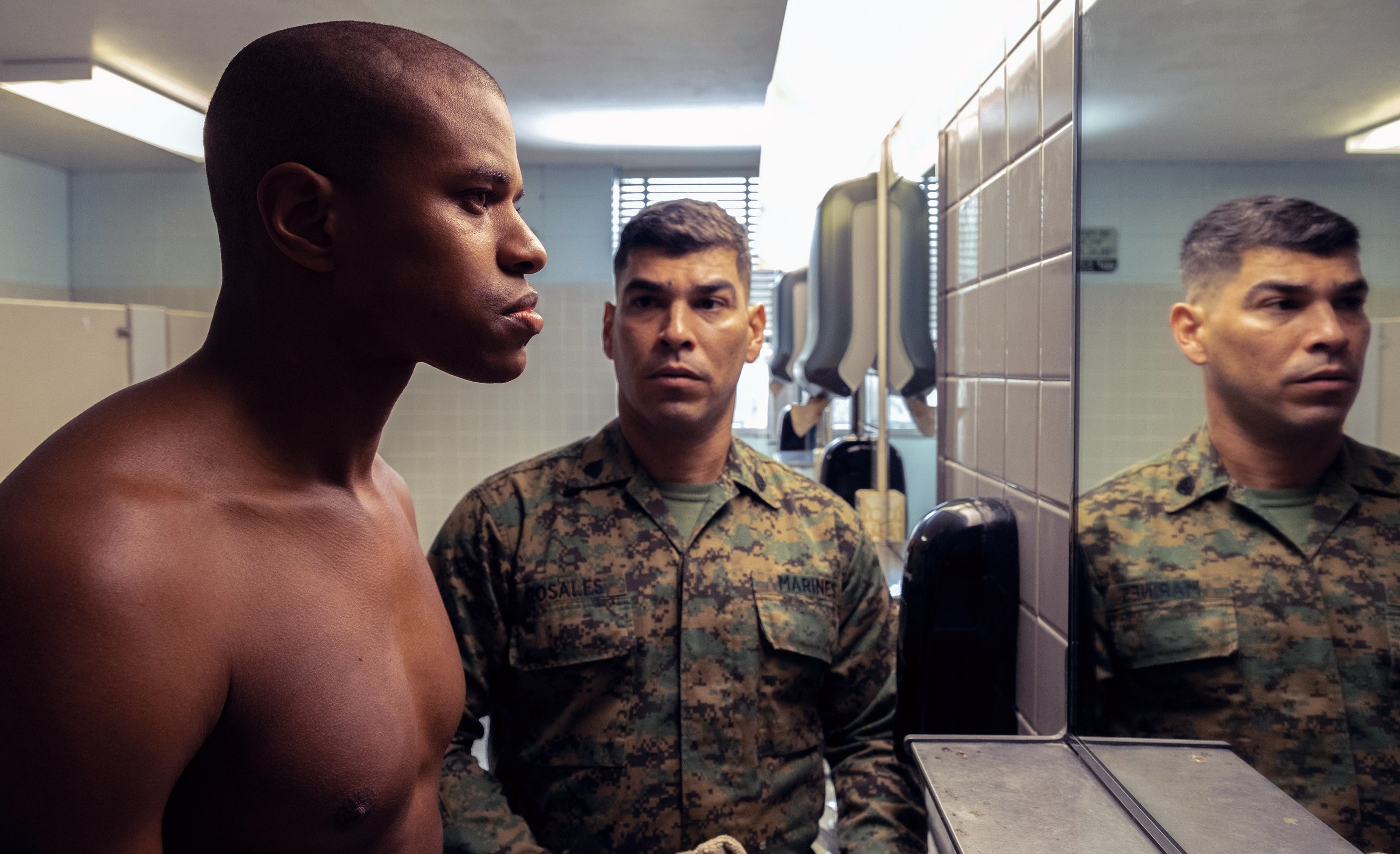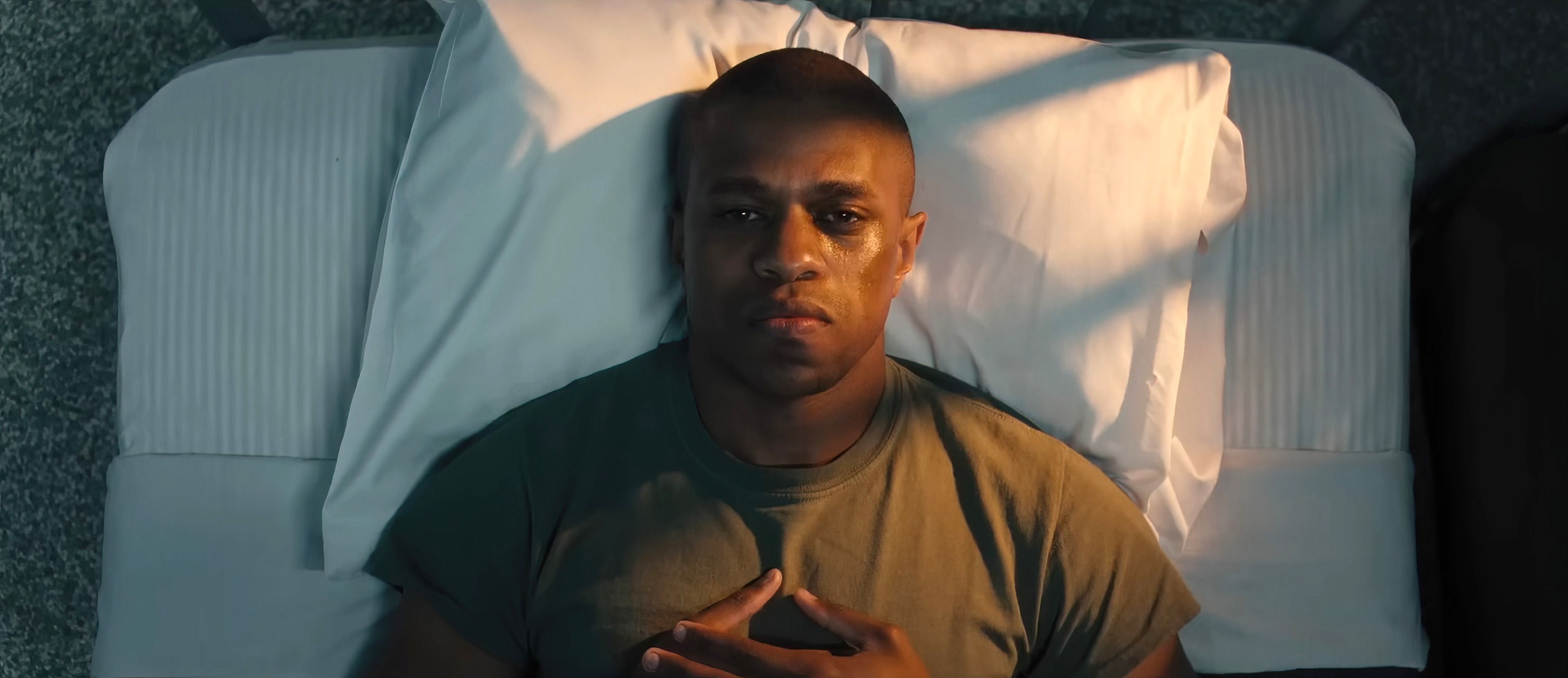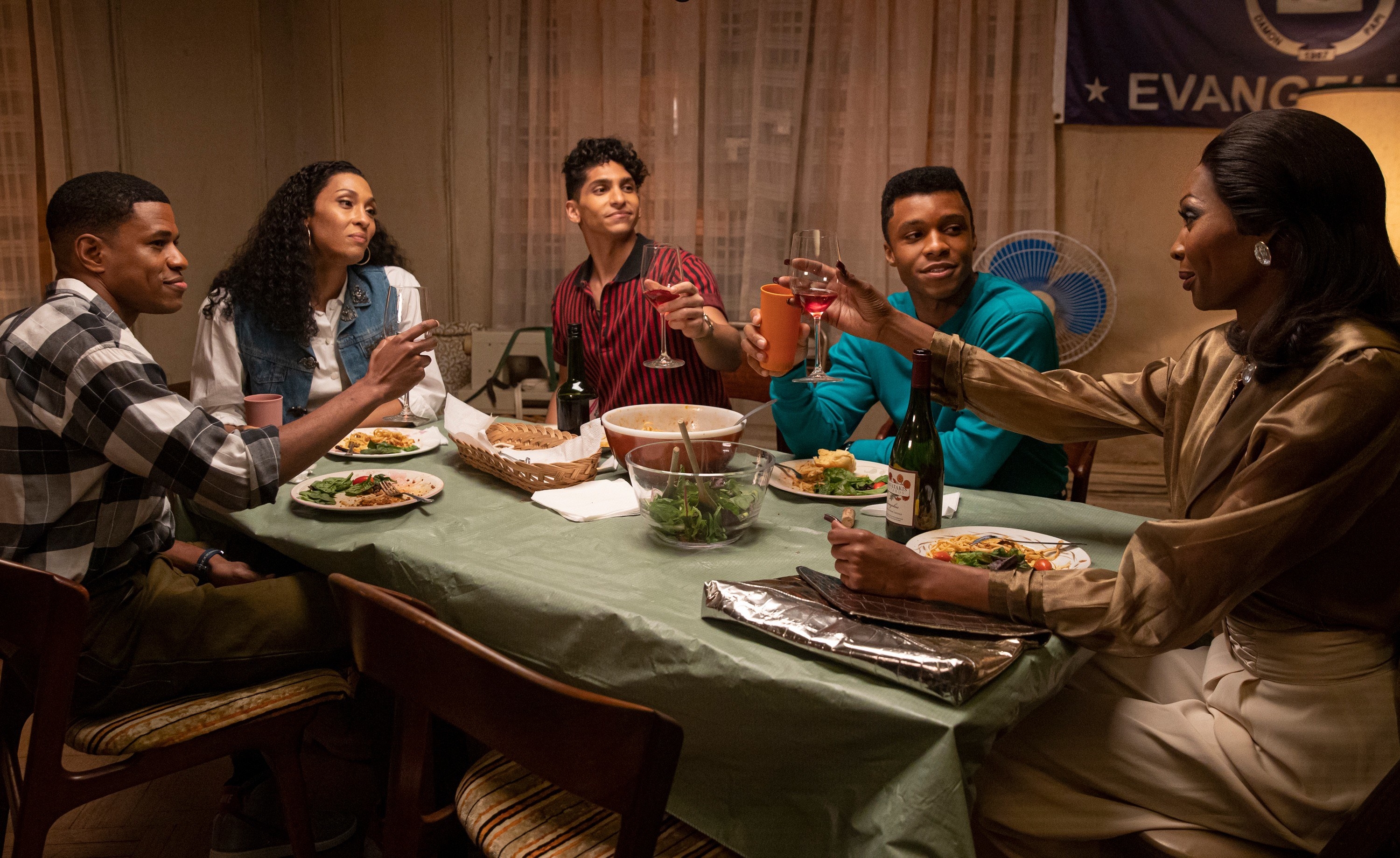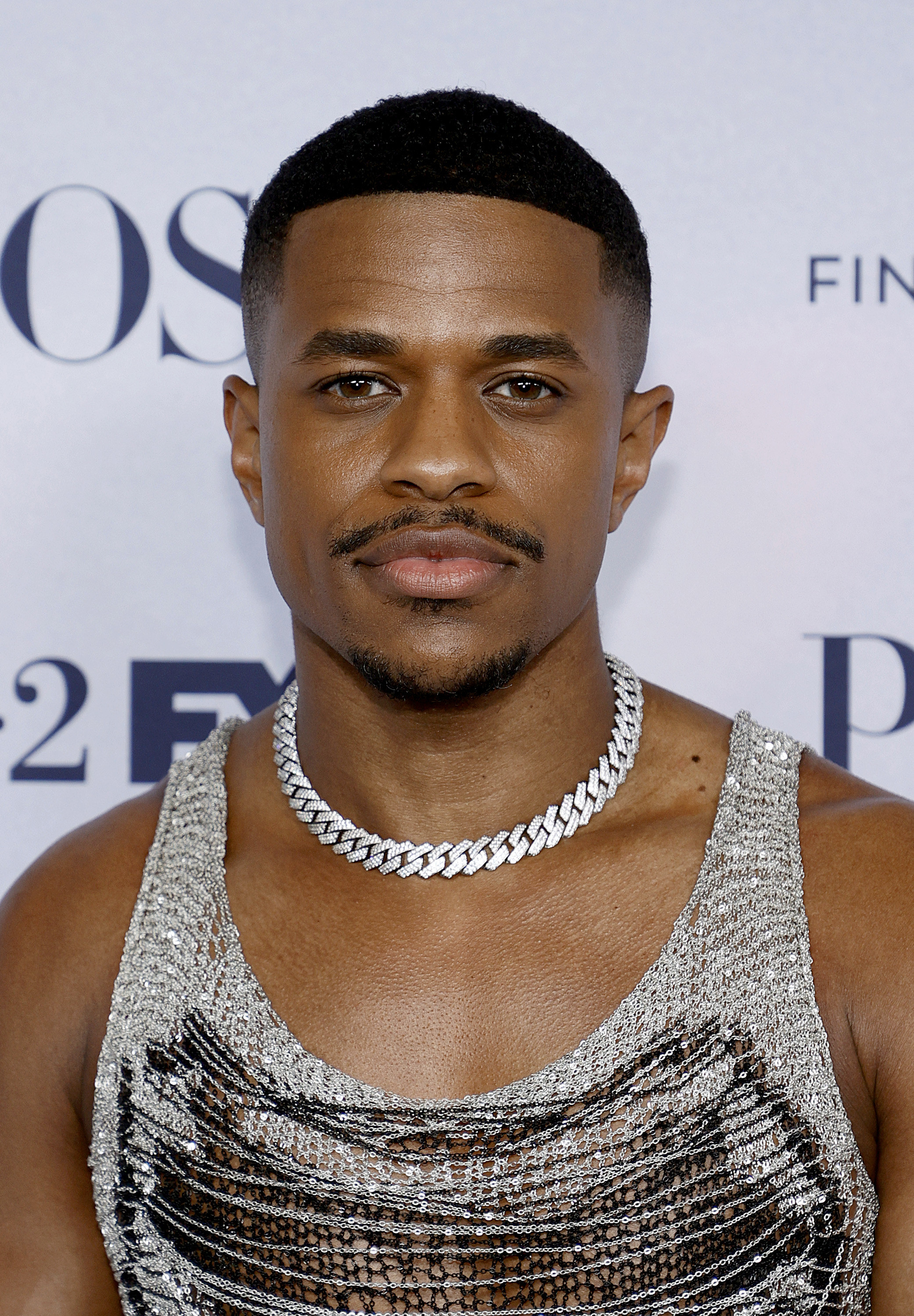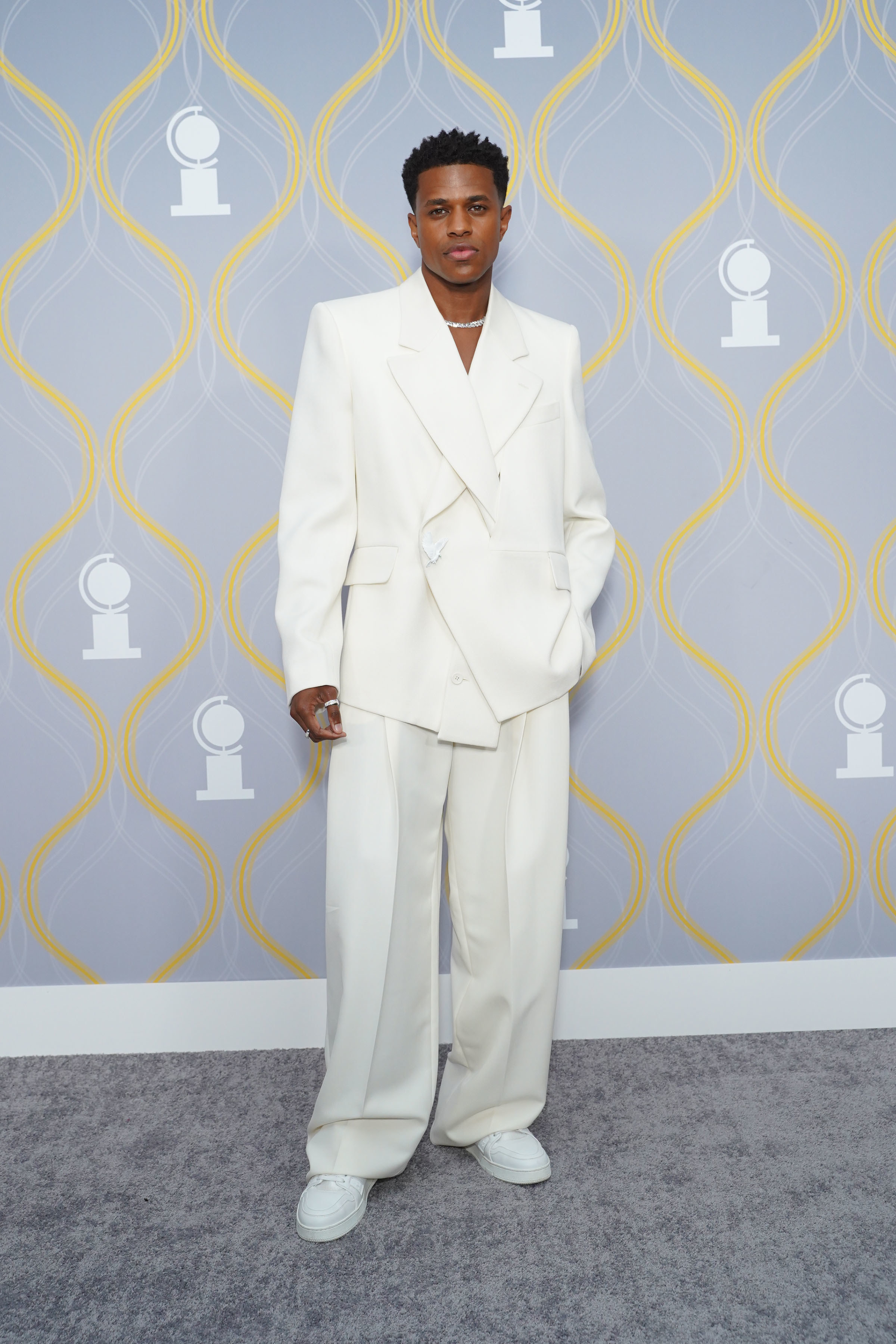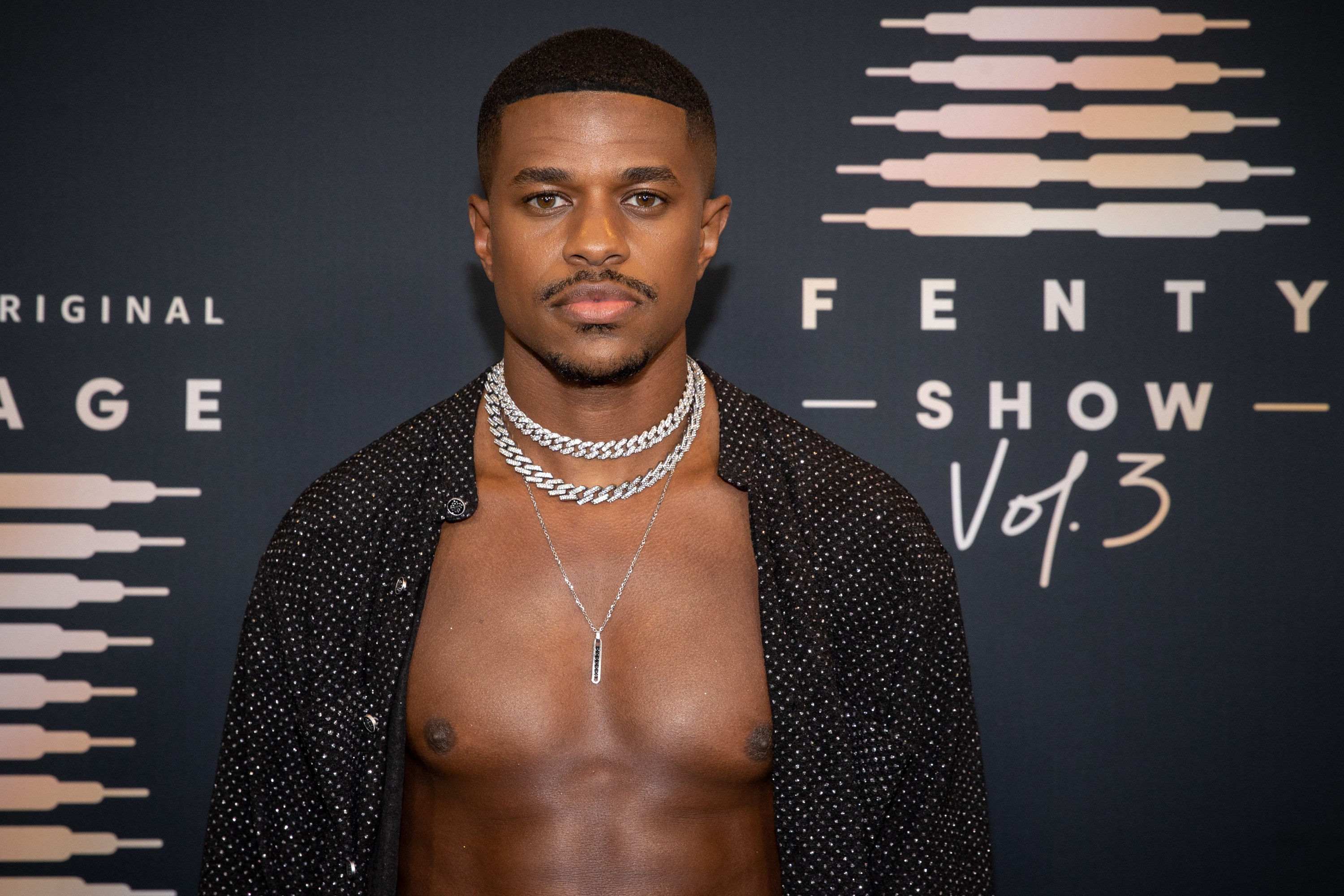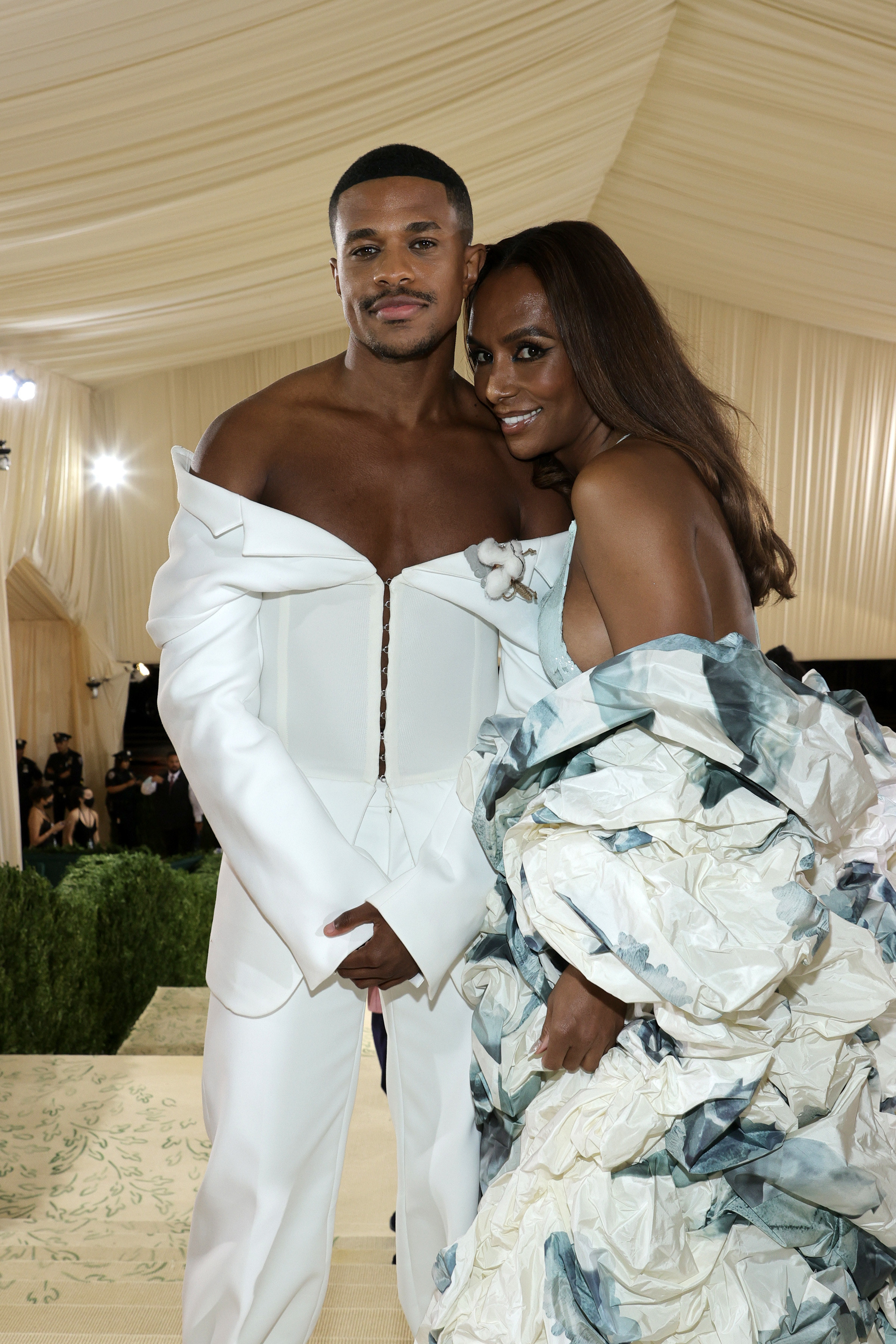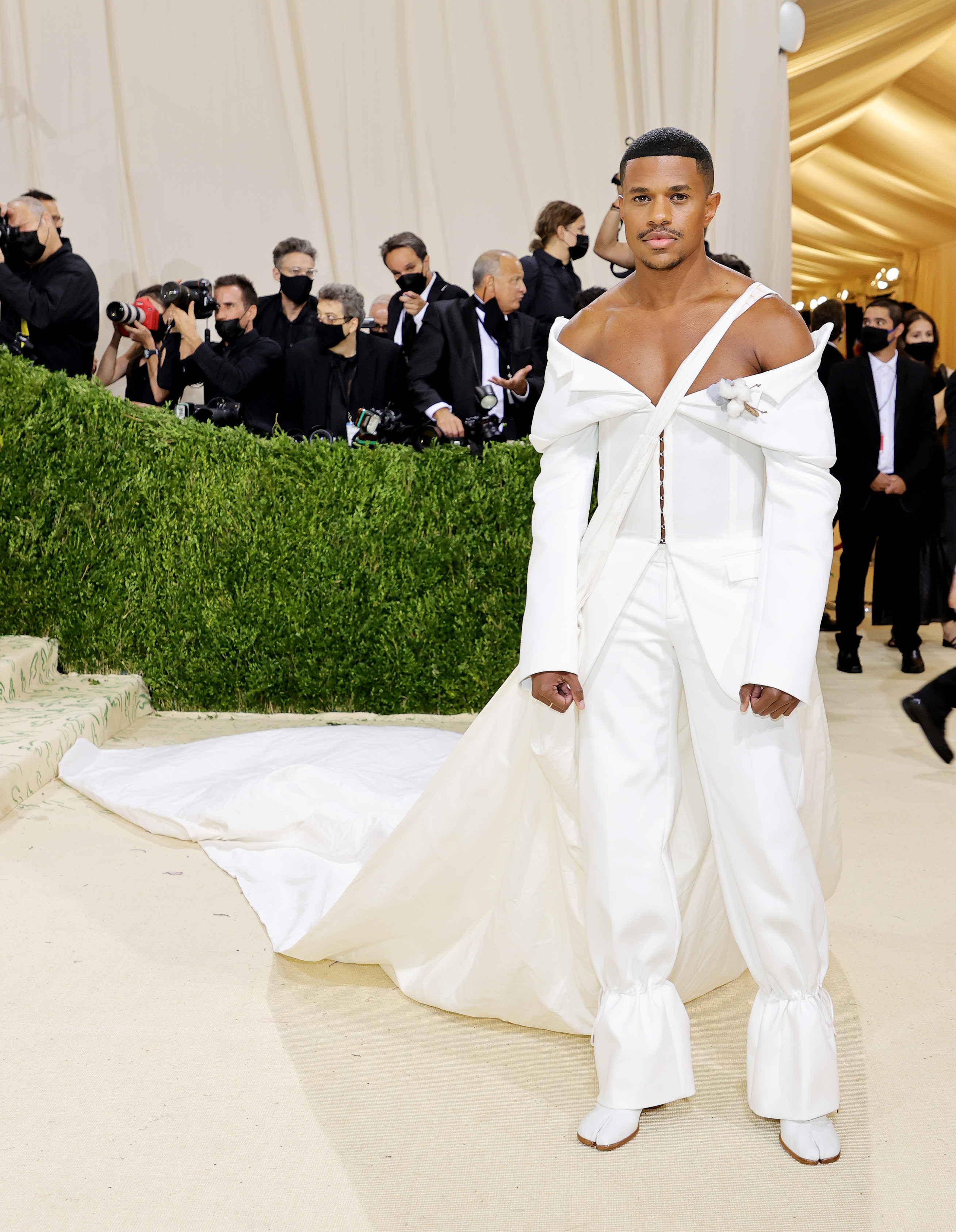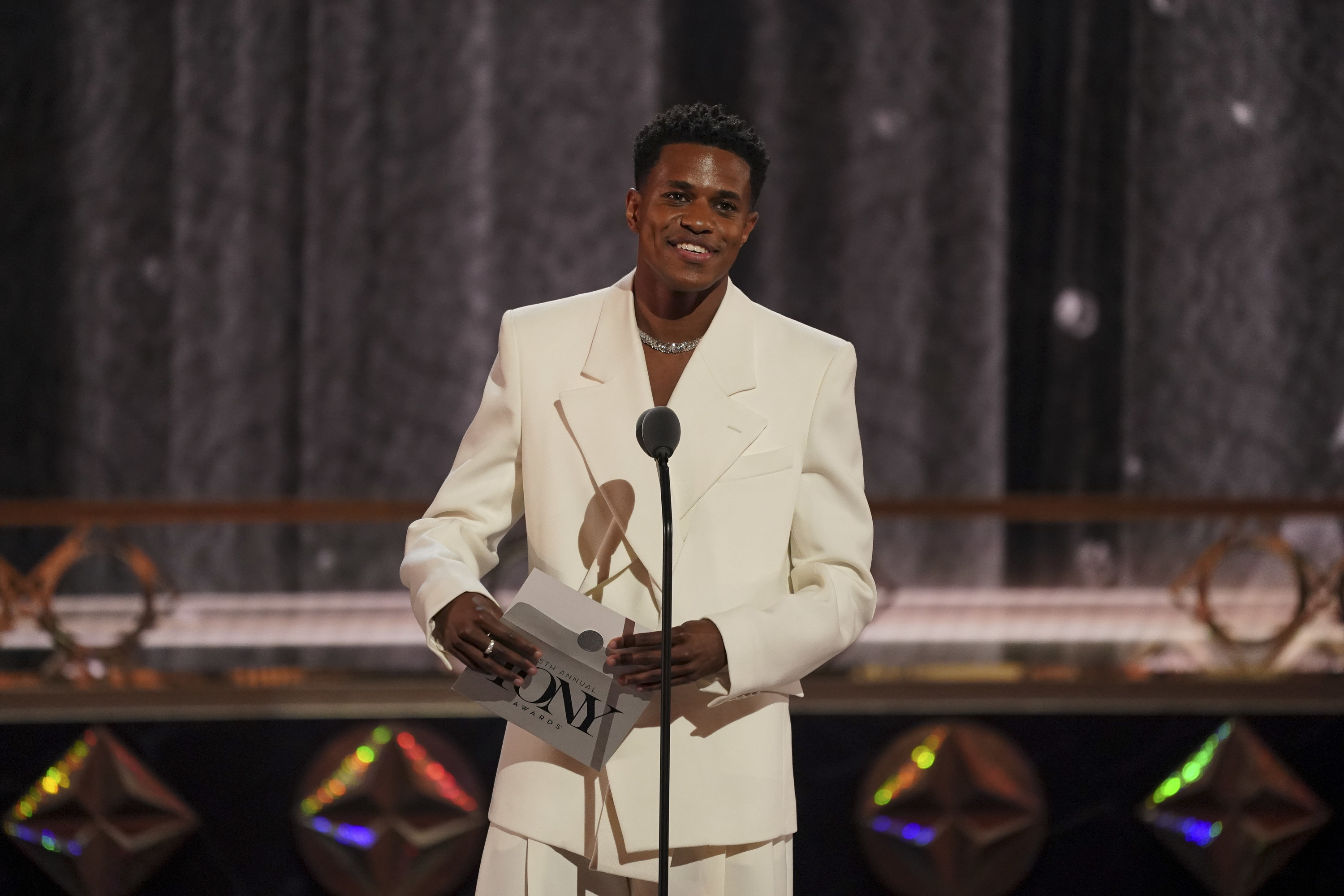“It was emotionally and physically demanding in a way that I don’t think I fully expected,” Jeremy admitted about his performance. The 30-year-old, who has previously starred in Ryan Murphy–led projects like Pose and Hollywood, found himself as the leading man for this intense flick. “Hearing, ‘Is it Oscarworthy?’ Fuck that. This film is healing for someone. It was healing for Elegance,” he declared. Keep reading to find out how Jeremy and his costar Gabrielle Union were able to bond on set, why he thinks The Inspection will ultimately save lives, and much more. Warning: Some spoilers for The Inspection ahead. This role was a job of service for me. It was a job that ultimately was about protecting Elegance Bratton. He was putting himself on the front line and sharing his truth. By him making this film, as hurtful and as painful as it was, he could walk in this life a little bit lighter. He could have closure. French and Inez both wanted the same thing, but how that looked was very different. I ultimately do want to believe that French’s mother and Elegance’s mother in real life wanted to love them but under conditions. That was the pull and the tug. Gab is about that life in real life: what she stands for with her family and the work they’re doing by protecting their family and their [trans] daughter. She understands that 10 toes down; she understands what it means to show up and listen. That’s what we had to do for Elegance, outside of our characters. It brought a nuanced understanding. For Elegance to be that raw and vulnerable in his storytelling was unique, and it’s ultimately what I felt when reading the script. I did this project to protect him. I knew that by Elegance telling his truth, it would come at a cost. By being so vulnerable, he was inviting the world and film critics to have an opinion on his truth, whether good or bad. As Black and queer people, we’re often taught we have to be something other than ourselves to be successful. There’s a myth that, if you’re Black, in order to be successful, then you have to talk a certain way or can’t wear your hair a certain way. Or if you’re gay, you can’t be flamboyant. It’s all these things that we’re told to do that most times don’t align with who we are. This film was an affirmation for me to continue to do the work and tell stories in this way, and to be as vulnerable as I had to be. I pray [The Inspection] will save someone’s life, to know that they’re gonna be okay too. I’ve never seen a military film like this, one that centers on a Black queer man, and it’s not about him going to the Marines and all of a sudden he can do 20 pushups instead of two pushups. French found self-love and self-acceptance in a way he didn’t expect. I think that is the happy ending: French learning that he is enough, and he has always been enough. I’ve found that the more I’ve stepped into my truth in loving and supportive spaces, with creatives that respect me for my art and who I am — however you see me first, whether you see my Blackness or my queerness — I feel like all of my dreams can happen and will happen. It’s such a beautiful affirmation for little Jeremy, who had moments of doubt and, for so many years, hid and felt like I didn’t want to share this piece of myself because of safety reasons or because I didn’t want to lose out on an opportunity. The only opportunity you’re really losing is the ability to be free. My whole journey has just been a blessing, and it’s a gift. I know how hard it is to be a creative. It’s really tough. I spent many years in New York City grinding, trying to prove to my parents that none of this is in vain and that I’m gonna be someone. When you hear so many noes, you start to wear that no, and you start to feel that no. When you walk into a room and you’re giving your best interpretation of whatever the director tells you and it’s still, “No, thank you,” or you never even get a callback … you start to feel like “I’m the no,” and who I am, what I bring into a room, isn’t enough. You start to compare yourself to things that you will never be. Who helped you to unlearn those false beliefs? Tarell [Alvin McCraney]. Choir Boy was written by Tarell long before the success of Moonlight. Tarell and I were deep in the play in 2012. He was the person that allowed me to see a strong, Black queer man and to believe I’m going to be that, because he is love and he is joy. From there on, I decided I’m not going to be fearful. I’m not going to be scared because I’m not seeing the visual representation of myself in Hollywood, or on the stage at the time. Who I was in 2012, when I first performed Choir Boy off-Broadway for 100-seat theaters, was very different than who I was performing it on Broadway in later years. I was [eventually] able to lift my head up and stand in my queerness. I wasn’t out when I first did Choir Boy. So that was its own journey. God gave me that project for it to serve in a specific way.
